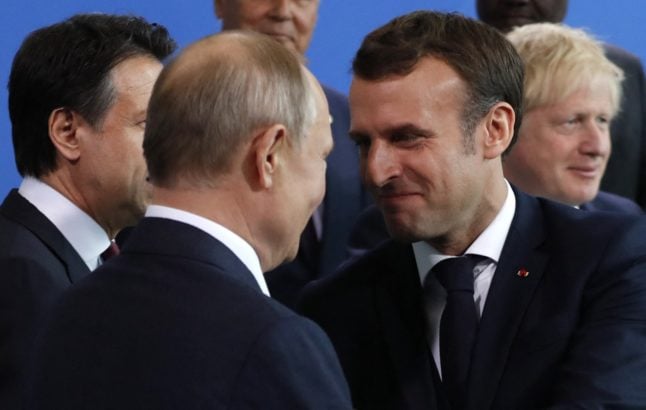The Prime Minister Elisabeth Borne has survived five censure motions in the last week. She has used the emergency clause in the constitution – Article 49.3 – to short circuit parliamentary debate on three occasions.
Use of Article 49.3 is, theoretically, a last resort. It will become a weekly event, maybe even bi-weekly, in the next couple of months.
Opposition censure motions will also multiply. Madame Borne will survive them all.
It may seem, to use a British term, “unparliamentary”, to resort to emergency powers so often to prevent the National Assembly from debating and voting. In French terms, it is unusual but perfectly constitutional.
EXPLAINED: What is Article 49.3?
President Charles de Gaulle set up the Fifth Republic constitution to give the President and the executive the power to govern “against” parliament if necessary. He wanted to end the revolving-door governments of the Fourth Republic. In the 1940s and 1950s, France had changed its Prime Ministers almost as frequently as Britain has achieved post-Brexit.
De Gaulle gave the executive the right to force through legislation without a parliamentary vote so long as it “engaged its responsibility” – in other words put its own survival on the line. Deputies could only block the legislation if they tabled and voted for a motion of censure.
A Prime minister who lost would have to resign. The President would appoint another one – or call early parliamentary elections.
All Presidents of the Fifth Republic (ie since 1958) have used this Article 49.3 power at least once. Systematic use has been rare because Presidents have mostly had friendly parliamentary majorities. When presidents faced clearly unfriendly majorities, they had to surrender much of their power to “opposition” prime ministers.
The only previous time when Article 49.3 was used systematically was in 1988-95, when François Mitterrand had a fragile and makeshift parliamentary majority, at best. Since the parliamentary elections last June, President Emmanuel Macron and Prime Minister Borne have had no majority at all. They have 250 of the 577 deputies – 39 short of a majority.
No other bloc in the assembly comes anywhere near a majority either. This is an unprecedented situation in the Fifth Republic, more reminiscent of the Fourth (1945-1958).
The other main blocs – the left alliance, the far-right and the centre-right – COULD bring the government down if they all voted together. That may happen at some point but not yet. All posturing apart, no one wants an early election – not the left, not the far-right, not the centre-right and not Macron.
Borne has been using 49.3 in the last week to push through the first readings of the government’s general and social security budgets for 2023. In other words, she is unable to ensure the state’s ability to continue spending next year without resorting to her emergency powers.
Initially, the 49.3 power was limitless. Since constitutional changes in 2008, it remains so for all budgetary votes. For other legislation, Article 49, clause 3 can be used only once in each parliamentary year.
The various oppositions say Borne is trampling the right to debate and amend the budget; she says (rightly) they have abused that right by tabling hundreds of motions that they know that she cannot accept (as well as a few that she has).
To everyone’s surprise last week, Marine Le Pen’s far-right Rassemblement National voted for a censure motion tabled by the Left. This still failed by 50 votes because the centre-right bloc of 62 deputies withheld their support (as everyone knew they would).
There was another left-wing censure motion on Monday. That failed by 71 votes because some Socialists and Communists stood aside rather than vote with the far-right. Two far-right censure motions failed comprehensively because no one else would vote with them.
Marine Le Pen has been very clever – or she thinks that she has.
By voting “with the Left”, she achieved three things. She was able to pose as the strongest and most determined party of opposition to Macronism. She was able to prise further apart the rifts which had already appeared in the pan-Left alliance, Nupes.
Most of all, she embarrassed the centre-right Les Républicains, whose “non-votes” kept Borne in power. Le Pen has since been busily painting the Républicains as de facto “allies” of Macron, “Macronists in all but name” etc
This has put the Républicains in an awkward spot. They are in the middle of a leadership election in which the three leading candidates are competing to declare themselves the least “Macron compatible” and best able to rebuild the once powerful centre-right after Macron can no longer stand in 2027.
President Macron has, himself, been trying to widen splits within the centre-right by calling on Les Républicains to enter an “alliance” with his government. In a one-hour TV interview last Wednesday, he emphasised centre-right words like “order” and “security” and “responsibility”.
At the same time, both he and Prime Minister Borne have suggested that early elections will be called if the government loses a future censure vote. At one level, this is a statement of the obvious; at another, it is a warning to the centre-right.
The Républicains, above all, would stand to lose from a snap election. So, probably, would a re-divided Left. Opinion polls suggest that the beneficiaries would be Macron and Le Pen.
What has been happening in the last week, and will continue until the Christmas recess (and maybe into the New Year) is a a giant game of bluff or political poker. The divided opposition is ostentatiously opposing; the government is trying to govern and, at the same time, embarrass and divide the opposition.
Does any of it matter very much? In the short-term maybe not; in the medium-term, it is a hazardous game.
There are already signs of tensions within Macron and Borne’s centrist coalition. By appealing for centre-right votes, Macron is angering some of his supporters in the old centre and centre-left.
Few French people are following the parliamentary psycho-drama in detail. Few probably recall the origins of 49.3. Those who already detest Macron are being confirmed in their exaggerated view that he is somehow an illegitimate and anti-democratic leader.
In truth the Opposition, or oppositions, gave Macron and Borne no choice but to use 49.3 to push their budget through. The crisis will arrive if – or when – Macron and Borne use the same emergency power to push through pension reform in the New Year.
A later retirement age than 62 will inevitably be opposed in that other great unelected French parliament –The Street. If Macron and Borne can be represented as riding roughshod over both parliament and protest, France will be in for a deeply troubled start to 2023.



 Please whitelist us to continue reading.
Please whitelist us to continue reading.
Member comments